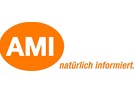Ecuador is one of the  world's leading countries regarding bananas. The country has so far marketed around 20 percent of its produce to Russia, equivalent to about 1.5 million tons, as Ursula Schockemöhle (right) from Agrarmarkt Informations-Gesellschaft (AMI) tells us. An additional 330,000 tons in turn went to Ukraine. To compensate for these missing markets, however, is not possible so easily, she said. "A sale in the EU is not possible due to the lack of certificates. Small shares are sold to other Eastern European countries, but this is nowhere near comparable to the Russian market," Schockemöhle said.
world's leading countries regarding bananas. The country has so far marketed around 20 percent of its produce to Russia, equivalent to about 1.5 million tons, as Ursula Schockemöhle (right) from Agrarmarkt Informations-Gesellschaft (AMI) tells us. An additional 330,000 tons in turn went to Ukraine. To compensate for these missing markets, however, is not possible so easily, she said. "A sale in the EU is not possible due to the lack of certificates. Small shares are sold to other Eastern European countries, but this is nowhere near comparable to the Russian market," Schockemöhle said.
Shipping companies avoid Black Sea and St. Petersburg
"The Russian market is supplied via the ports on the Black Sea or via St. Petersburg. Although the St. Petersburg port is still accessible, most shipping companies sanction Russian ports. So Ecuador is stuck with the large volumes." The already high freight costs are also rising due to required bunker surcharges, which should be seen as another consequence of the Russian war in Ukraine.
"The lack of availability of containers is an ongoing problem. In addition, there are longer transit times as well as irregularities in traffic. Ships are docked for days outside ports in the Caribbean or Central America waiting for the goods. In Europe, we again have delays because loading and unloading slots can suddenly no longer be met - especially in Rotterdam and Antwerp. This complicates the situation, especially since the goods also have to be ripened precisely," Schockemöhle notes.
Long-term banana prices - 7,000 euros for containers
Prices change little in both the conventional and organic sectors, over the course of the year - apart from the spot market. "In the past, the banana market was much more volatile in terms of prices. This is because, over time, organic bananas established themselves in markets characterized by longer-term contracts. This has now had an impact on the conventional market as well. Weekly price jumps in supplies to food retailers have not occurred for a long time."
Negotiations always started in the fall and winter months. "Last year, it was negotiated that suppliers would receive higher cost prices in order to be able to cover the higher costs to some extent, but this has currently lapsed again." For example, the price for containers on the spot market is currently at 7,000 euros.
However, bottlenecks are not to be expected on the German banana market. "The market was not undersupplied, although there have definitely been shortages. But the main problem is the many delays in transport. Bottlenecks arising as a result cannot simply be compensated for by additional purchases, since all bananas are already labeled several times in the Latin American packing houses, depending on their destination. On the other hand, it is also possible that one ship is late and the next arrives on time, resulting in double the quantity being available. This poses a challenge, especially for the ripening masters, who have to time the ripening precisely if there are ever delays," the expert said. "For the German market, the main countries are still Ecuador and Costa Rica, followed by Colombia, and the Dominican Republic and Peru for organic bananas."
Growing market in the organic sector
Bananas in particular play a big role in the organic sector, Schockemöhle says. "If you look at the top 10 in the German fruit sector, for example, apples rank first, closely followed by bananas. In the organic sector, the places are reversed again. Organic bananas are simply available in every store, regardless of how large the respective organic assortment is. Converted to the kilo, bananas are even cheaper than strawberries or raspberries. Therefore, there are also many spontaneous buyers in this area. Bananas account for an estimated 16 percent of the organic market. They are also affected by declines in demand, but prices remain stable."
For more information: Ursula Schockemöhle
Ursula Schockemöhle
Agrarmarkt Informations-Gesellschaft mbH
Dreizehnmorgenweg 10
53175 Bonn
Deutschland
Tel. (0228) 33805-0
[email protected]
ami-informiert.de/ami-maerkte










